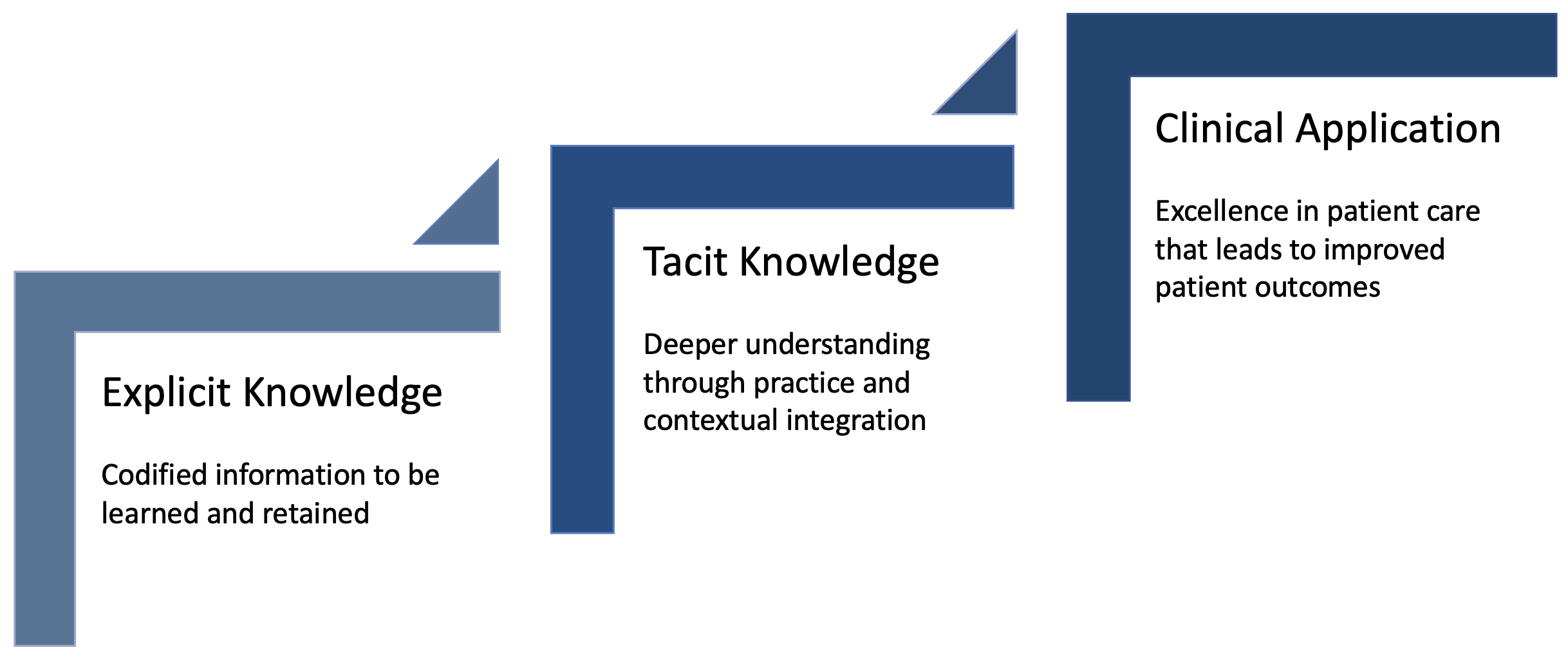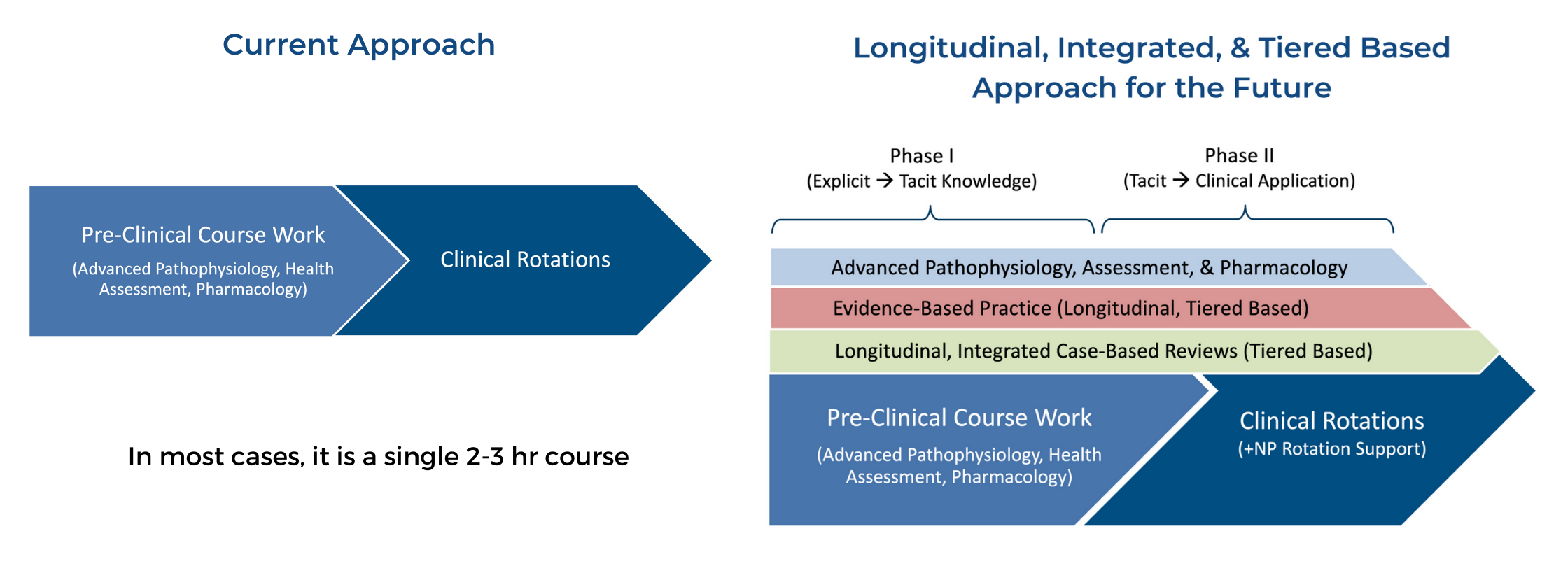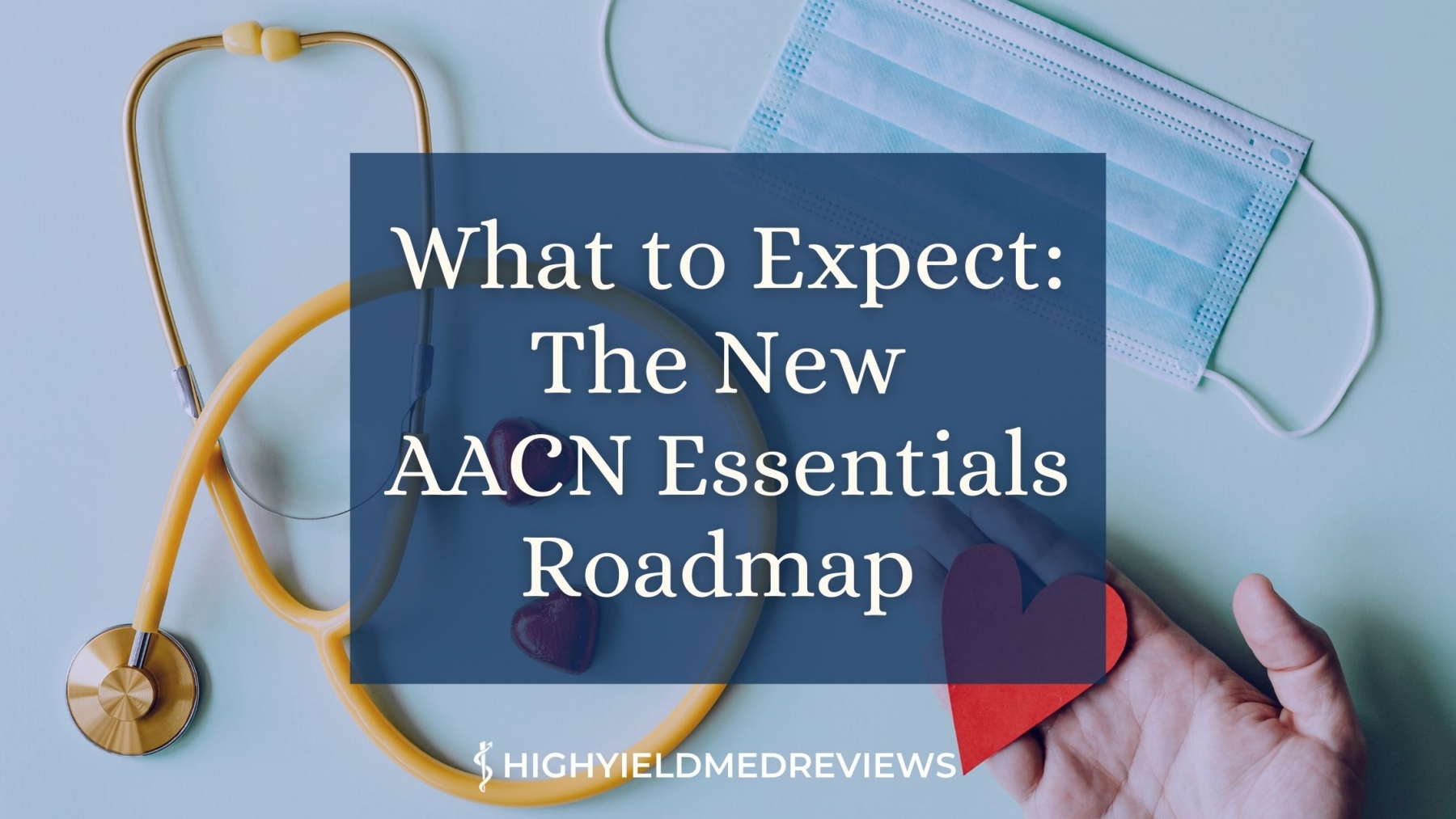What to Expect: The New AACN Essentials Roadmap
The American Association of Colleges of Nursing released a new outline of core competencies in 2021 for professional nursing education, better known as the AACN Essentials. This significant overhaul of the AACN Essentials has many educators and students alike wondering what changes they can expect, how these revisions will affect nursing as a whole, and how they can prepare.
While these "Re-Envisioned Essentials," as AACN calls them, covers a wide breadth of topics, at a foundational level these standards are meant to ignite a shift from time-based achievement to competency-based education. Currently, the degree of variation between educational curriculum, accepted levels of competency, and the knowledge gap among graduates across programs has caused concern within the profession.
The AACN asserts, "A transition to competency-based education will address issues related to providing more consistency among graduates; clarity in expectations for program outcomes; preparing graduates with a greater understanding of the discipline of nursing; and a smoother transition from one education program to another as well as from one career path to another."
Traditionally both foundational and advanced nursing programs focus on outcomes - getting the grade, completing hours, obtaining the degree - an admittedly 2-dimensional view of education. The AACN Essentials call for a more 3-dimensional assessment of learning. What does this mean?
Students are taught to understand the rationale behind clinical decision making and are empowered through practical experience and true understanding to provide excellent and consistent patient care.
The AACN defines competency-based education as a "system of instruction, assessment, feedback, self-reflection, and academic reporting that is based on students demonstrating that they have learned the knowledge, attitudes, motivations, self-perceptions, and skills expected of them as they progress through their education." Practically speaking, students are taught to understand the rationale behind clinical decision making and are empowered through practical experience and true understanding to provide excellent and consistent patient care.
This has been the vision and
educational approach of High-Yield since the beginning. Our content aims to be easy to understand,
evidence-based, clinically relevant, and oriented to the patient. We believe this move to competency-based
education is timely and good for the development of the profession, will better
equip nurse practitioners for their valuable work, and benefit the patients
they serve with improved outcomes. At
High-Yield we accomplish this through Knowledge Transfer methodology, which builds on explicit
knowledge, develops tacit knowledge through contextual integration, and applies
both to clinical scenarios. The new AACN Essentials and the Knowledge Transfer
approach advance learning beyond basic memorization into deeper understanding
and application to complex clinical scenarios.
The AACN recognizes that there will be growing pains with a paradigm shift such as this, and estimates it will take at least three years to fully implement. While that timeline provides the possibility for a smooth transition, institutions must act now to prepare students for new industry expectations. Evidence-based practice is an important featured concept in the re-envisioned AACN Essentials along with clinical judgment, communication, compassionate care, diversity, equity and inclusion, ethics, health policy, and social determinants of health. These core concepts focus on evidence-based medicine and patient care issues.
For institutions and their faculty in particular, these changes may be daunting. With the future of the field and patient outcomes at stake, however, this shift is imperative. Nursing is an evolving practice. With over 20,000 drugs on the market today, prescriptive authority for Nurse Practitioners, in particular, is a heavier responsibility than ever before. The growing problem of drug errors in the US has become dangerous, with 770,000 hospitalized patients in America alone likely to experience an adverse drug event each year.1Prescribing errors per order occurred at rates of 0.6 to 53 per 1,000 orders.2Errors of omission are murkier. This evolution of nursing, while potentially anxiety-provoking, is necessary.
So how do physiology/pathophysiology, health assessment, and advanced pharmacology in advanced nursing education fit into the Essentials framework? The AACN states, "A strong foundation in multiple areas of science is needed to form the basis for clinical judgment in all nursing practice." While the updated Essentials do not change the specific requirements for APRN graduates, advanced knowledge and level 2 competencies must be demonstrated.
Ultimately the current approach, which in most cases includes a single semester 2-3 hour course in the 3 Ps, must be replaced with a more comprehensive, tier-based (or knowledge transfer) approach.

Nurse Practitioner program faculty understand the importance of hands-on experience built upon a solid foundation of core knowledge for their students. Educators are faced with the challenges of limited time and resources to impart the wisdom and judgment gleaned from years of experience, in addition to the enormous amounts of material that must be covered as a baseline.
High-Yield NP Curriculum Support naturally aligns with the new AACN Essentials with competency-based advanced pharmacology and NP Clinical Rotation Support for an integrated approach to pharmacology across a 2-year NP program.
Moving forward, with the new AACN essentials in mind, the challenge for educators will be pushing their students past core knowledge principles to competency-based learning for a more complete approach to patient care.
You may also like:
"Knowledge Transfer Explained"
"The NP and Prescriptive Authority"
Download a Free NP Curriculum Support Resource Guide
References
1Agency for Healthcare Research andQuality; https://psnet.ahrq.gov/primer/medication-errors-and-adverse-drug-events
2"Preventing Medication Errors" Consensus Study Report by the Institute of Medicine; https://www.nap.edu/catalog/11623/preventing-medication-errors
https://www.aacnnursing.org/Portals/42/AcademicNursing/pdf/Essentials-2021.pdf


